
- HOME
- Cosmetic OEM Lab
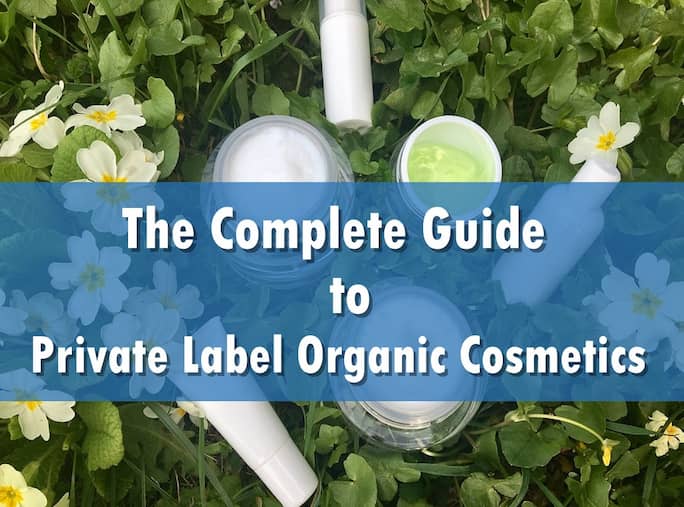
Organic cosmetics have been increasingly popular among both women and men in recent years, as they are both ecologically friendly and beneficial to skin health.
Organic cosmetics are made using organically grown vegetable raw materials, which means they must always be accompanied by a formal certification proving their safety.
If you’re looking to acquire private label beauty products, be sure they’re acceptable for face, body, and beauty.
In this article, we will take a comprehensive look at the meaning of private label organic cosmetics, key certifications used in organic cosmetics, as well as the pros and cons.
In the end, we explained the key things to consider before choosing any private label organic cosmetics.
Contents
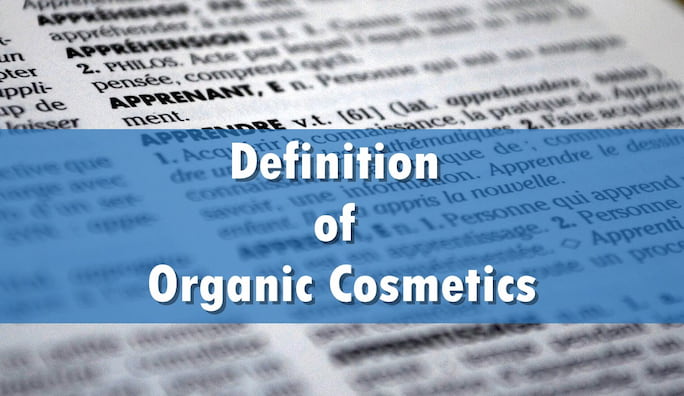
Organic cosmetics that are certified are created from natural ingredients using natural processes. These cosmetics must not contain any of the following ingredients:
Organic cosmetics are made with natural components that are developed without the use of synthetic fertilizers or genetically modified organisms (GMOs).
To be considered organic, a cosmetic must include no petroleum-derived substances, paraffin, formaldehyde, or synthetic colors.
There are several key reasons why choosing private label organic cosmetic products could be a good option for your business. These products protect your skin against premature aging caused by chemicals, which are present in all non-organic cosmetics on the market.
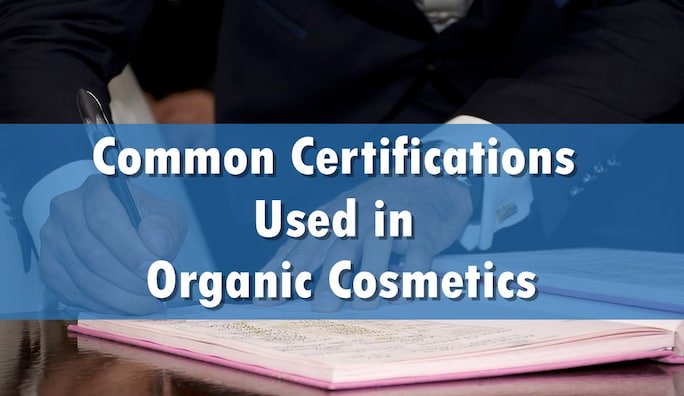
Several international organizations certify private label organic cosmetics to ensure that consumers get the best of organic products. We’ve explained the key focus of three organizations that certify organic cosmetics.
The acronym COSMOS stands for Cosmetic Organic and Natural Standard. The organization establishes certification standards for organic and natural cosmetics in Europe. The cosmetic industry around the world recognizes the standard.
The COSMOS standard designs the criteria that businesses must achieve to assure consumers that their products are authentic organic or natural cosmetics made using the most environmentally friendly methods possible.
The COSMOS-standard seal is a consumer guarantee of high-quality organic and natural cosmetics. The COSMOS ORGANIC or COSMOS NATURAL seal may now be found on over 26,000 goods in 70 countries.
The COSMOS CERTIFIED seal can be found on over 10,000 substances. While the COSMOS APPROVED label can be found on over 7,000 raw materials.
The quantity of natural ingredients in the finished product is the most important criterion for gaining organic cosmetic certification. This must be at least 95%. The proportion of natural substances that are also organically produced is the second criterion. This must be at least 20% (10% for rinse-off products).
The COSMOS standard is controlled by the COSMOS-standard AISBL, a non-profit, multinational, and autonomous organization based in Brussels.
The founding members (BDIH in Germany, Cosmebio in France, Ecocert in France, ICEA in Italy, and the Soil Association in the United Kingdom) continue to contribute their combined experience to the COSMOS-ongoing standard’s development and maintenance.
ECOCERT is an independent, recognized third-party organization that analyzes, inspects, and validates organic farming rules on all levels. It is recognized in over 130 countries as the world’s foremost authority in the certification of sustainable organic practices.
At the moment, ECOCERT is one of the world’s largest certification organizations, with nearly 30 years of experience in supporting the development of green chemistry utilizing renewable resources.
ECOCERT is a non-profit international active and independent inspection organization based in France. It also inspects natural ingredients, as well as the natural and ecological quality of cosmetic goods, since 2002.
ECOCERT is now one of the most well-known marks in the field of natural cosmetics standardization. It is well-known for doing thorough product testing and evaluation and has earned widespread respect over the years.
The following are the basic standards for certified products:
Furthermore, an ECOCERT Organic Cosmetic is distinguished by the following:
The Halal certificate is a document that verifies that products and services offered to Muslims are compliant with Islamic law and thus suitable for consumption in Muslim-majority countries and Western countries with sizable Muslim populations (France, Germany, United Kingdom, Spain).
However, there is a rising level of awareness and demand in Japan as well, even though the Muslim population is far from large. Local and internationally valid certifications can be obtained. Still, since it is a new and niche concept, private label companies who are capable of it are very limited and so are the range of products that can be manufactured.
Halal certification validates the features and quality of items in compliance with the Islamic Council’s rules, allowing them to bear the Halal label. It is usually used on meat and other food products like milk, canned food, and additives.
Nonetheless, Halal cosmetics rapidly gained wide-spread awareness and popularity during the last decade, with a constantly growing market. Since, Halal cosmetic ingredients are generally derived from plants, soil, and water, they can also be suitable for people who look for natural products.
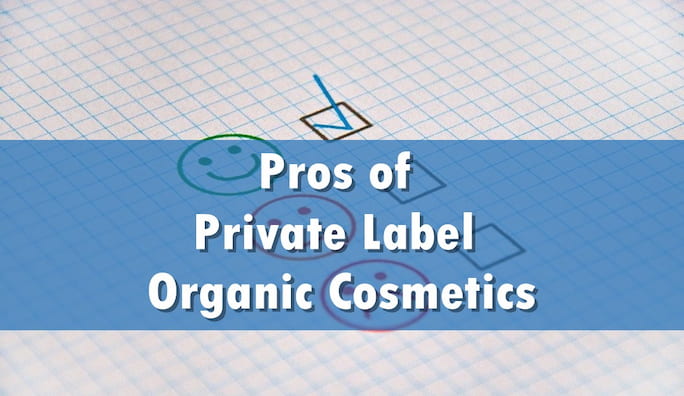
There are several key benefits of using private label organic cosmetics and they include the following:
Private label organic cosmetics are manufactured with the same organic ingredients as organic food. No harsh chemicals, herbicides, or fertilizers are allowed. This makes organic cosmetic products easier on human skin and therefore more suitable for people with sensitive skin.
As a matter of fact, inorganic products can also be formed with relatively softer ingredients and be suitable for people with sensitive skin. This is very popular in Japan since there are many people who are concerned with having sensitive skin. Still, many people tend to believe a product needs to be organic in order to be healthy, which allows organic products to have their place in the market.
Private label organic cosmetics product products with organic components that are farmed and processed in environmentally friendly ways. There is substantially less garbage and poisons going down the drain and back into the ground because these products do not include harsh chemicals.
This is the reason why organic cosmetic products are appealing to people with a strong awareness of the environment.
Millions of people across the world are now more concerned about their healthcare and environment than ever. People are more interested in safe products that are less likely to be harmful to their health and environment.
As such, the demand for private label organic cosmetics has been rising constantly over the past few years. Increasing demand means more people are interested in organic products than ever giving the industry a huge boost.
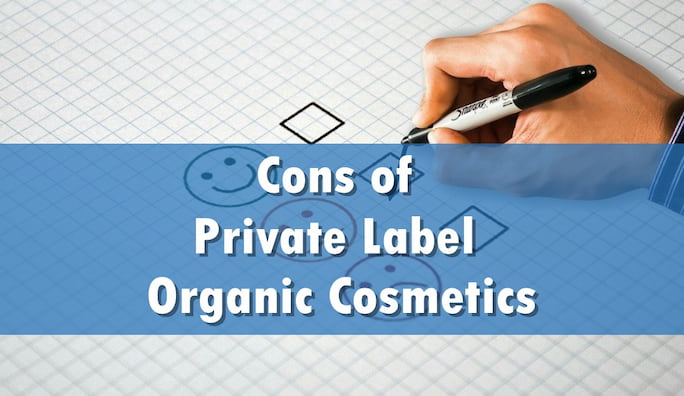
Similar to several other product lines, private label organic cosmetics have some disadvantages. Here they are:
Just like several other top-quality products, private label organic cosmetics are not cheap. You’ll most likely pay more to buy private label organic cosmetics products compared to non-organic products.
The main reason why organic products cost more is that organic ingredients and raw materials cost a lot more than inorganic ones. This is due to production costs and limited supply.
Creating private label organic cosmetics formulations is not as easy as they sound.
The thing is, the types of preservatives that can be used in organic products are very limited. This makes creating organic formulations a challenge.
Typically, developing organic formulations will take longer since they tend to fail stability tests on the first try.
Many natural, organic elements in private label organic cosmetics products might create long-term skin reactions. Some of them might be abrasive and harsh on the skin. None of this is good, so knowing what to avoid can help you take the greatest care of your skin possible.
Skin-irritating elements of any kind (natural or synthetic) cause the skin to break down and fall apart on all levels. It interferes with the skin’s capacity to rejuvenate and regain its original shape, as well as its ability to protect itself from environmental damage.
This is particularly true with some scent compounds, which are frequently classified as essential oils.
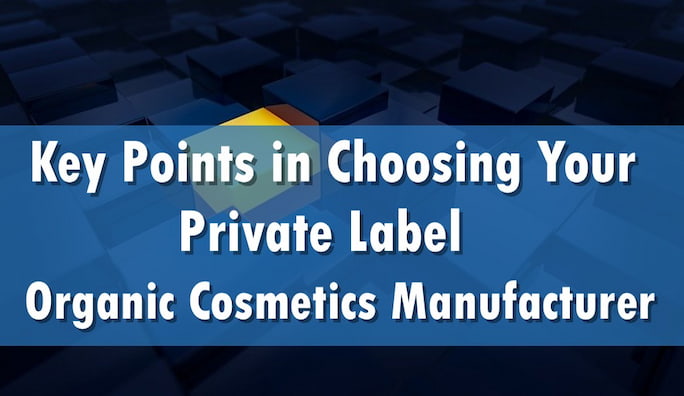
The following are the key things that are worth considering before choosing any private label organic cosmetics manufacturer:
Certain certifications are required to put some specific items on your label.
It’s important to inquire not only about whether or not the private label cosmetics manufacturer complies with any certifications you want to include on your branding but also about whether or not the items come within your line of ethics, as they will be associated with your brand.
Ask if the manufacturer adheres to required standards for any certifications for private label organic cosmetics, cruelty-free, natural, or eco-friendly products.
The ingredients of your private label organic cosmetics should be of the finest quality, just as they should be safe.
Depending on the price range in which you intend to sell your products, you’ll want to know the quality of the raw materials before purchasing the finished product.
Also, it is better to work with manufacturers who have access to a wide range of ingredients to minimize limitations and be able to create products as unique as possible.
Find out where your private label cosmetics’ raw components are from and whether they’re of good quality if at all possible. This may have an impact on your products’ shelf life, preventing you from making judgments that may cost you money later when your products expire before they can be sold.
Private label organic cosmetics products can only be as good as the ingredients used to create them. Investigate the methods used by private label cosmetics businesses to obtain their ingredients as well as the manufacturing process itself.
Do they make their cosmetics with materials that are made within your business country or materials that are sourced from other countries?
Are they made entirely from natural, organic, vegan, cruelty-free, or Fair Trade-certified ingredients? If any of these attributes are important to your target audience, make sure you use components that are supplied to the same high standards.

So far in the article, we have explained the definition of private label organic cosmetics and the common certifications they require.
More so, we have shed more light on the pros and cons of private label organic cosmetics, and the key things to consider before choosing any private label organic cosmetics manufacturer.
We are always excited to hear from our readers. Don’t hesitate to reach out to us if you have any questions or comments about the topic.
See you in the next article.
For further information, please contact us.